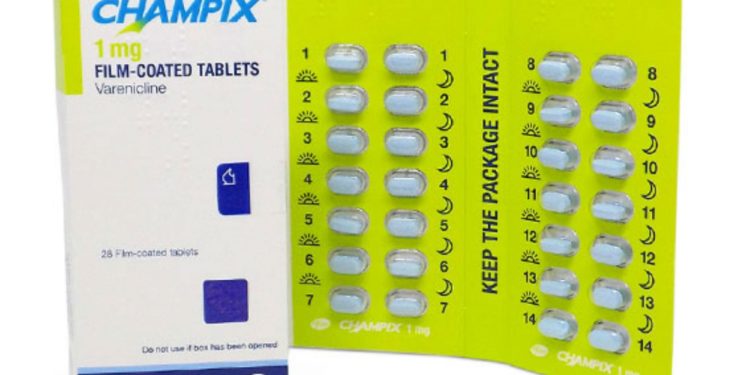High levels of cancerogenic nitrosamines have been recently found in the smoking cessation medicine Varenicline (Champix). As a precautionary measure, the drug has been withdrawn from the market and its distribution halted in June.
The Medicines and Healthcare products Regulatory Agency (MHRA), a Department of Health and Social Care in the United Kingdom, and the European Medicines Agency (EMA) have issued a supply distribution alert for Champix and initiated the drug recall.
As of today, Champix is still unavailable globally and drug’s manufacturer Pfizer is currently unable to confirm when resupplies will become available again.
“Pfizer is recalling specified batches (all stock) of products as a precautionary measure due to presence of levels of N-nitroso-varenicline above the acceptable level of intake set by both EMA and MHRA,” the regulator said.
This is causing suboptimal service at smoking cessation centres all around the globe.
Champix intends to help patients quit smoking with limited use of 12 to 24 weeks, outweigh the relatively low risks posed by temporary N-nitrosovarenicline exposure from the drug. So far, the safety profile of Champix had been established through clinical development programs and confirmed by data obtained in over 15 years of marketing and use by patients.
“The benefits of Champix outweigh the very low potential risks, if any, posed by nitrosamine exposure from varenicline on top of other common sources over a lifetime,” Pfizer spokesperson Steven Danehy told Reuters via email.
While the European Medicines Agency (EMA) advised to quarantine all the remaining stock of Champix tablets and withdraw from the market – UK National Centre for Smoking Cessation and Training (NCSCT)- recommended healthcare professionals encourage patients prescribed with this treatment to switch to nicotine replacement therapy without any safety issues.
According to the regulatory agency NCSCT Nicotine Replacement Therapy – including e-cigarettes – can be used as an alternative to Champix to relieve withdrawal symptoms and prevent relapse in smokers.
“Current contingency plan at our smoking cessation centre is to offer NRT and Zyban with counselling, but we are also actively advising to consider combustion-free nicotine delivery systems to help them to abstain from smoking,” noted Prof. Riccardo Polosa, founder of the Center of Excellence for the Acceleration of Harm Reduction (CoEHAR).
E-cigarettes have been proved effective as an alternative and less harmful tool in smoking cessation programs. According to numerous scientific research, the ecigs are up to 95% safer than conventional cigarettes thanks to being combustion-free. The main advantage of ecigs is that they do not contain tobacco, nor do they operate with the combustion temperatures that generate smoke toxicants. Furthermore, as underlined by recent surveys, their shape can mimic the rituality of smoking, increasing the chances for smokers to quit.





